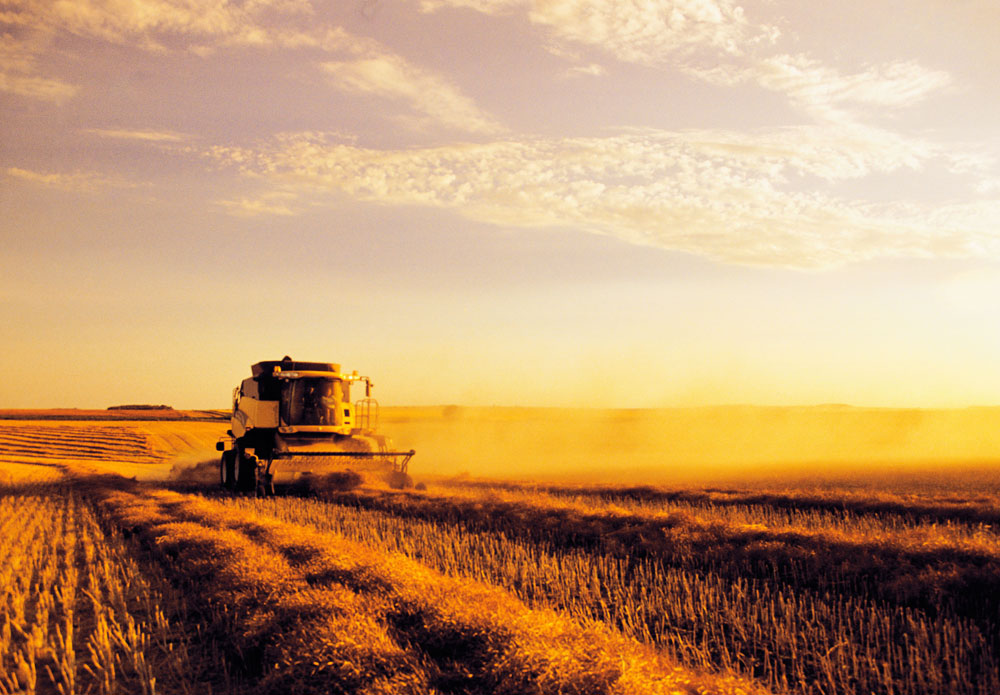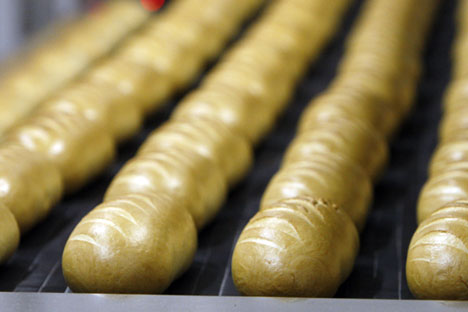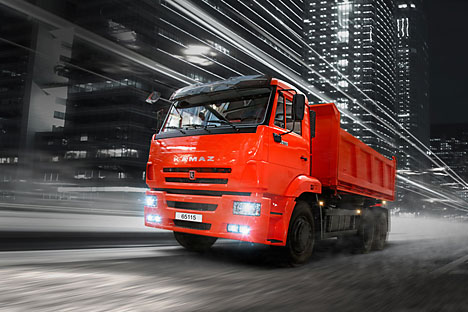Robot harvesters are ready to rule Russia's fields

A program to develop unmanned vehicles for agriculture has now been launched in Tatarstan.
Alamy / Legion-MediaA combine harvester slowly crawls across a Russian field and processes crops. At first glance, there is nothing unusual in this. If you look closer, however, you will find there are no humans inside – the harvester functions entirely by itself.
As the Russian agricultural sector faces a severe shortage of workers, scant manpower remains in rural areas. Many Russian agricultural holding companies have no alternative but to bring in migrant workers to the fields. The use of unmanned agricultural vehicles, however, will solve several problems at once – there won't be a need to ship in human workers, and it will increase productivity. A robot combine harvester does not need to sleep; it does not get ill, or need to go on holiday.
A program to develop unmanned vehicles for agriculture has now been launched in Tatarstan; and an agricultural holding company, Agropolis, will produce this smart equipment for smart agriculture.
Investment into Agropolis over the next five years will total more than $225 million, and the first unmanned harvesters will be ready in two years. Each is expected to cost only 15-20 percent more than traditional, man-operated vehicles.
Agropolis' main shareholders include Rostselmash, Russia's largest manufacturer of agricultural machinery, and Soyuz-Agro, one of Tatarstan's leading agricultural holding companies, as well as the Russian company Cognitive Technologies (CT). The latter already has experience in the creation of unmanned vehicles, and closely cooperates with KAMAZ, Russia's largest producer of trucks, for which CT is developing unmanned vehicle control systems.
Better than Google?
Robotic systems for Russia's agricultural sector will be developed in several key areas, said Olga Uskova, president of CT. First, this concerns agricultural harvesters and other equipment.
"This robotic technology is based on our developments for KAMAZ trucks, whereby the camera and the computer create a so-called 'virtual tunnel,' and the vehicle itself decides where it needs to go," Ms Uskova said, adding that Russian systems are just as good as leading foreign companies in this field – such as Google – and even surpass them in some respects.
According to Ms Uskova, foreign-built systems are largely designed for ideal road conditions – markers, pointers, signs and smart roads. CT's systems are geared to Russian conditions and can be used in the absence of any road indicators.
Russia uses this approach in addition to the active model, which involves the use of radiating devices – radars and lidars – that determines the distance and speed of objects. This model is used in many international projects, such as Google Car.
Drones eradicating weeds
Agropolis also plans to create automated crop monitoring systems. Drones will fly around fields and for example, monitor the presence of weeds. Also, stationary measuring devices will be installed in different parts of fields and for example, measure moisture levels or useful minerals in the soil. If these figures drop, then a command will be given to activate automatic watering, or fertilizer systems.
There are obstacles, however, to the use of drones in agriculture. "So far, there is no legislative basis for this kind of transport vehicle," said Oleg Korobkin, director of operations of the DPD transport company in Russia.
"Creating the necessary maintenance infrastructure is an important condition to facilitate the emergence of demand for such equipment," said Alexander Dyakonov, transport director of the logistics company, FM Logistic. "Moreover, we should think about what to do with the current human drivers; more than 2 million people operate and service commercial transport and other vehicles in Russia."![]()
Subscribe to get the hand picked best stories every week
All rights reserved by Rossiyskaya Gazeta.
Subscribe
to our newsletter!
Get the week's best stories straight to your inbox

